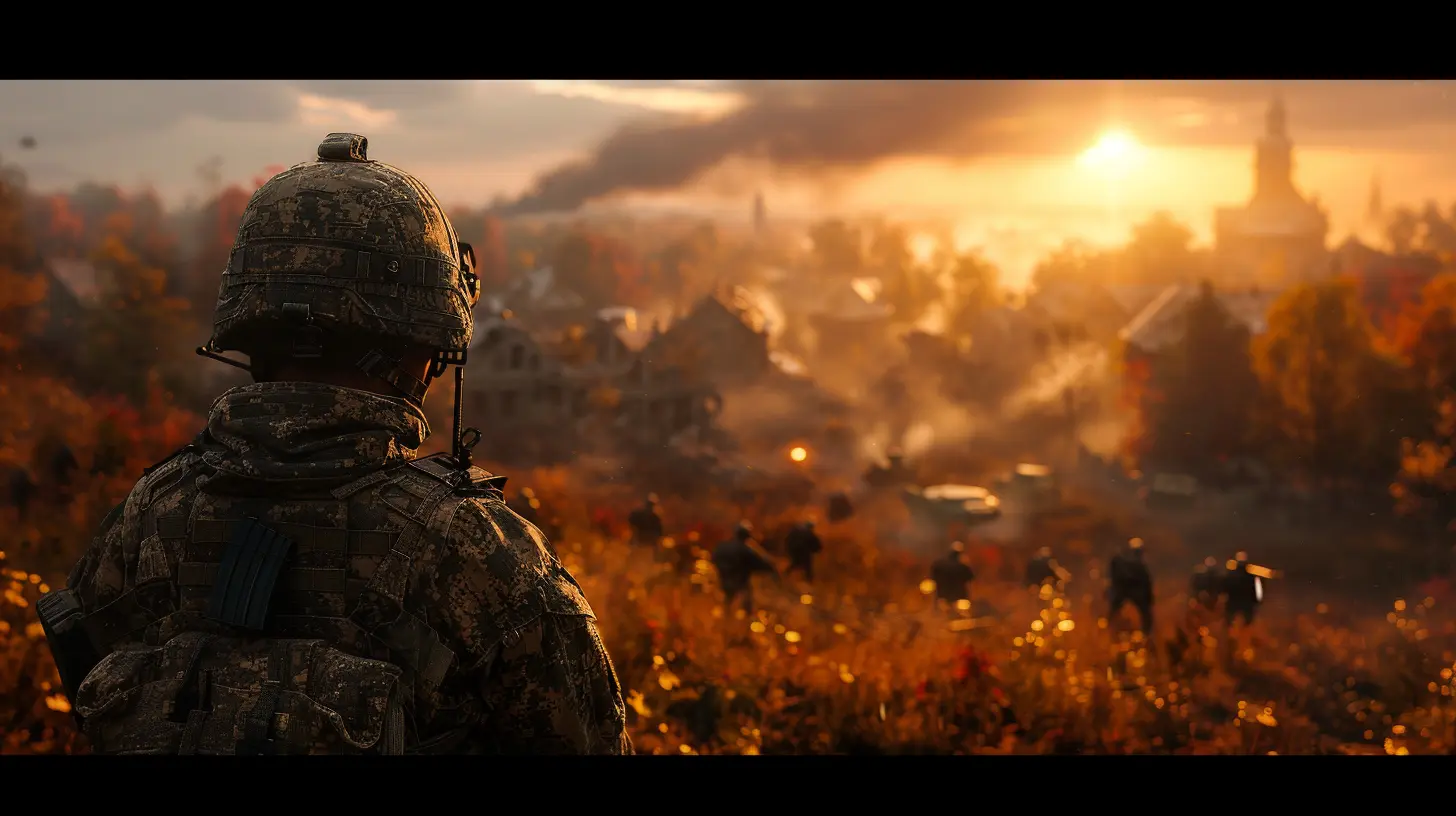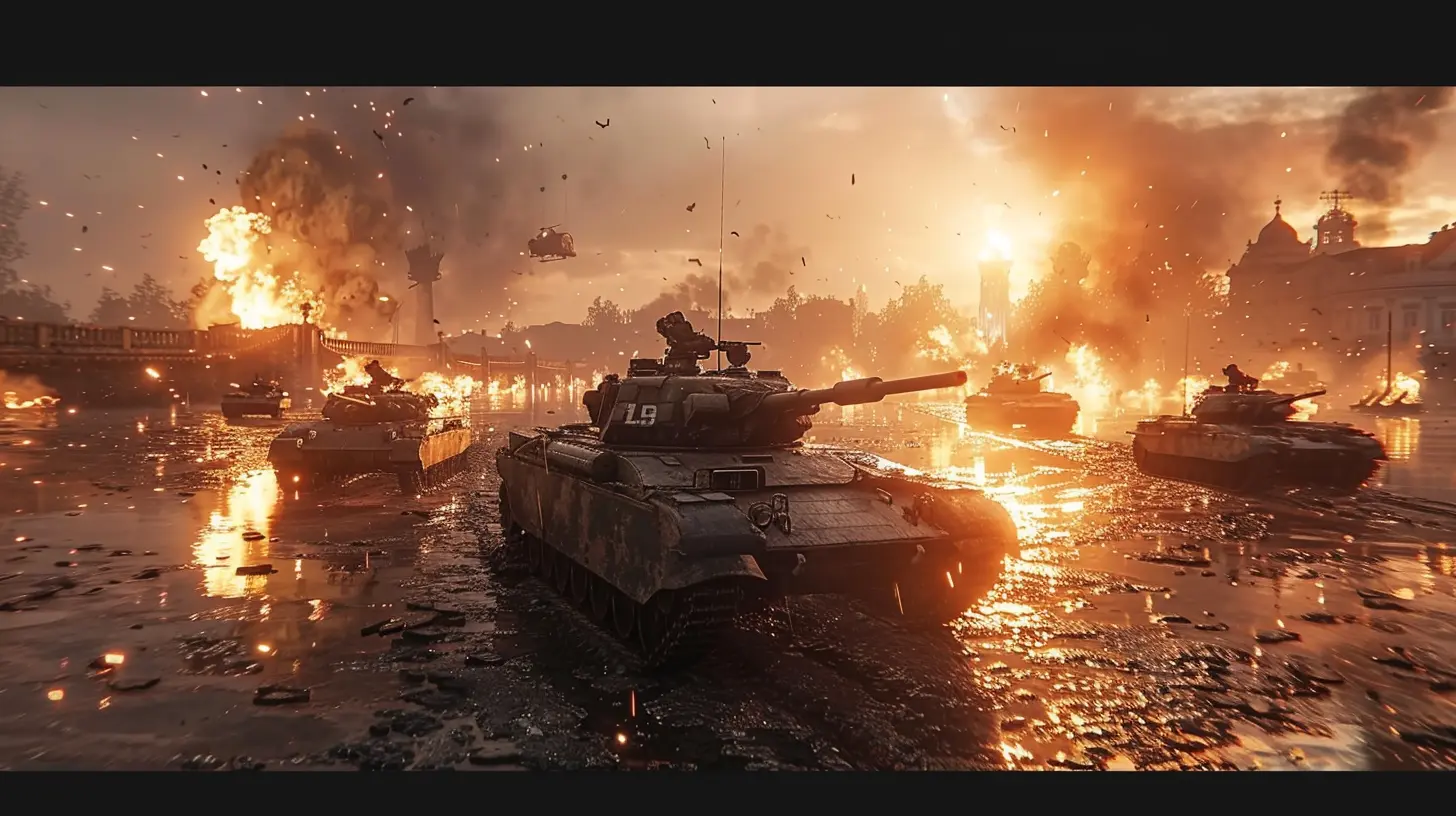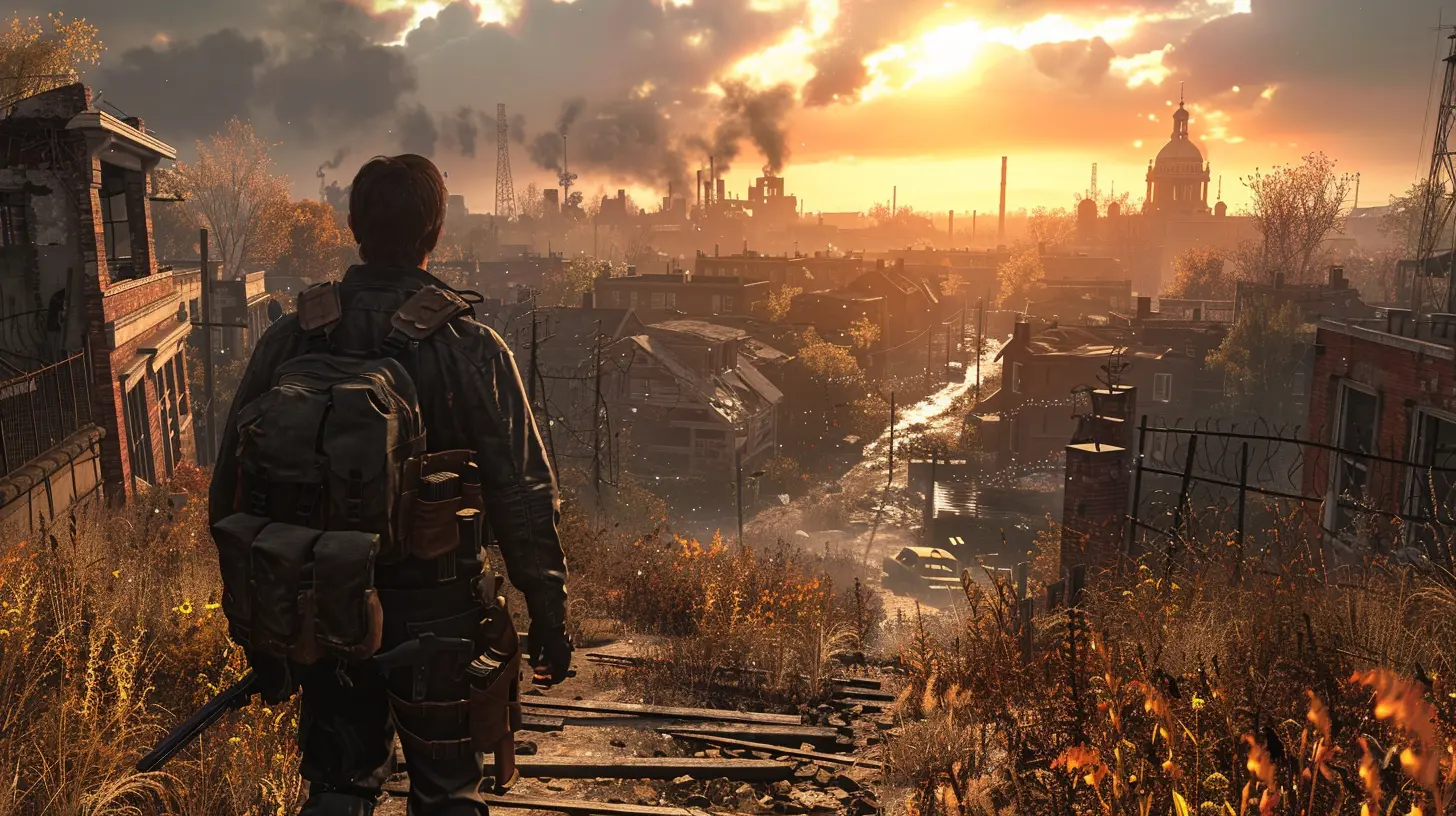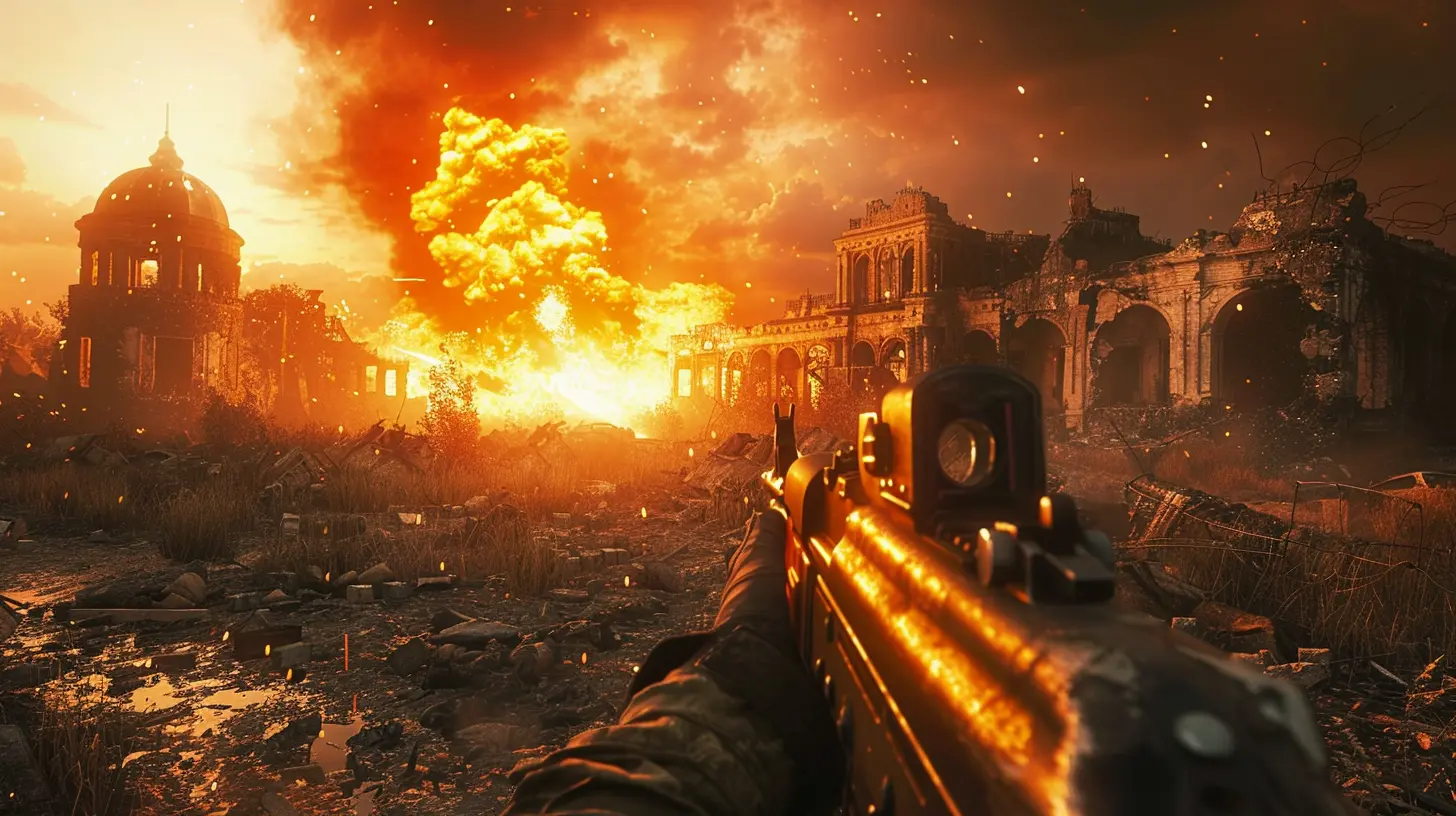Immersive Storytelling in War-Based Video Games
28 March 2025
When it comes to video games, few genres manage to deliver the emotional punch and thought-provoking narratives that war-based games do. While it’s easy to dismiss these titles as mindless shoot-'em-ups, the truth is, they're often much more than that. Behind the explosions and firefights, many war-based games have evolved into powerful storytelling platforms, weaving gripping tales of camaraderie, sacrifice, and survival.
For gamers, it’s not just about the adrenaline rush of combat; it’s about stepping into someone else’s boots, living their story, and experiencing the highs and lows of a battlefield from a deeply personal perspective. But what makes the storytelling in these games so immersive? Let’s dive in and find out why war-based games have become such compelling narratives. 
Why Storytelling in War-Based Games Matters
Let’s face it: war is a heavy topic. It’s complex, messy, and often heartbreaking. So why do we gravitate toward games that revolve around it? Because they allow us to experience something raw and real—without actually putting ourselves in harm’s way.War-based stories in games remind us of our shared humanity. They strip away politics and focus on the people—the soldiers, civilians, and occasionally even the "enemy." It’s not just about winning battles; it’s about understanding what it means to fight and survive. These games make us feel something, whether it’s the thrill of victory, the sting of loss, or the moral ambiguity of making life-or-death decisions.
When done right, they’re not just games; they’re emotional journeys that leave a lasting impression. 
Incredible Storytelling Techniques in War-Based Games
What makes the storytelling in these games so effective? It’s not just about writing good dialogue or creating compelling characters. Developers go the extra mile to captivate players. Here’s how:1. Realistic Characters and Relationships
Great stories hinge on great characters, and war games are no exception. Developers understand the importance of creating protagonists and supporting characters who feel authentic. You’re not just controlling a faceless soldier; you’re playing as someone with hopes, fears, and maybe even a family waiting back home.Take Brothers in Arms as an example. It's not just about completing missions—it’s about building relationships with your squadmates. You feel responsible for them, and when one of them is injured or worse, it hits hard. It’s like losing a buddy in real life.
And it’s not just the protagonists who carry the story. Even the most fleeting NPCs (non-player characters) can leave a mark. A grieving mother in a war-torn village or a soldier reading a letter from home—they all add layers to the narrative.
2. Moral Dilemmas That Hit Hard
War isn’t black and white, and neither are the stories told in these games. You’ll often face choices that force you to question your own morality. Do you save civilians at the cost of your mission? Do you follow orders or listen to your gut?Games like Spec Ops: The Line are masterful in this regard. Its story forces you to confront the ugly truths of war—collateral damage, the toll of violence, and the mental strain on soldiers. By the end, you’re not just questioning your in-game actions; you’re questioning yourself.
It’s not about right or wrong. It’s about the grey areas in between, which makes for intensely gripping storytelling.
3. Environmental Storytelling
Sometimes, the best stories aren’t told through words but through the environment itself. A bombed-out city. A blood-stained helmet lying in the mud. A makeshift grave marked with a soldier’s dog tags. These details speak volumes without a single line of dialogue.Environmental storytelling draws players in by letting them piece together the narrative. Battlefield 1, for example, uses its maps to communicate the harsh realities of World War I. You can almost feel the desperation and loss in every trench and crater.
And the beauty of this approach? It makes the player an active participant in the story. You’re not just being told what happened—you’re discovering it yourself.
4. First-Person Immersion
Few mediums are as immersive as video games. Unlike books or movies, you’re not just observing the story; you’re living it. First-person war games amplify this tenfold, putting you directly in the line of fire.The frantic chaos of battle, the roar of gunfire, the deafening boom of explosions—it’s all designed to make you feel like you’re truly there. And when the game slows down to show you the human side of things, those moments hit even harder.
Games like Call of Duty: Modern Warfare excel in this area. The night-vision missions, tense stealth segments, and heart-pounding shootouts aren’t just gameplay—they’re a masterclass in building tension and delivering narrative impact. 
Examples of War Games That Nail Immersive Storytelling
Think all war-based games are the same? Think again. Here are a few standout titles that have raised the bar for storytelling in the genre:1. Spec Ops: The Line
This one’s a no-brainer. Spec Ops: The Line isn’t just a game; it’s an emotional gut-punch. It takes the typical modern military shooter and flips it on its head, forcing players to grapple with the horrifying implications of their actions.By the time the credits roll, you’re left questioning everything—from the nature of war to why you even play war games in the first place.
2. This War of Mine
Unlike most war games, This War of Mine puts you in the shoes of civilians trying to survive in a conflict zone. It’s brutally realistic and unapologetically grim, but that’s what makes it so powerful.Every decision—whether it’s scavenging for supplies or deciding who to trust—carries weight. It’s not about "winning"; it’s about surviving another day.
3. Medal of Honor: Above and Beyond
This VR title takes immersion to the next level. You’re not just watching the story unfold—you’re living it. From daring escape missions to intense firefights, the game delivers a vivid and unforgettable World War II experience.
The Future of Storytelling in War Games
So, where does the genre go from here? With advancements in technology like virtual reality and AI, the possibilities are endless. Imagine war games where characters react to your decisions in real-time or environments that change based on your choices.And let’s not forget the rise of indie developers. While big-budget titles like Call of Duty dominate the market, smaller studios are pushing boundaries with innovative storytelling techniques. Games like Valiant Hearts: The Great War prove that you don’t need a massive budget to create a moving narrative.
Ultimately, the future of war-based games lies in their ability to connect with players on a personal level. The more these games make us think, feel, and empathize, the more impactful they’ll become.
Final Thoughts
War-based video games are more than just entertainment—they’re stories that resonate. They remind us of the costs of conflict, the bonds forged in adversity, and the resilience of the human spirit.Whether you’re storming the beaches of Normandy in Medal of Honor or grappling with the moral weight of your actions in Spec Ops: The Line, these games have the power to leave a lasting impact.
So the next time someone dismisses war-based games as “just another shooter,” you’ll know better. They’re immersive, thought-provoking, and—dare I say it—art. And honestly, isn’t that what great storytelling is all about?
all images in this post were generated using AI tools
Category:
War GamesAuthor:

Pascal Jennings
Discussion
rate this article
4 comments
Zephyrion McClain
Powerful narratives enhance gameplay experience.
April 18, 2025 at 2:53 AM

Pascal Jennings
Thank you! I completely agree—powerful narratives are essential for creating deep emotional connections and enhancing the overall gameplay experience in war-based video games.
Mateo Sanchez
Immersive storytelling in war-based video games elevates the medium, allowing players to experience complex narratives and emotional depth, making each battle resonate on a personal level.
April 10, 2025 at 4:46 PM

Pascal Jennings
Thank you for your insight! I completely agree—immersive storytelling indeed transforms war games into impactful narratives that engage players on a deeper emotional level.
Indie McClendon
Who knew virtual war could be so emotional? Between dodging bullets and crafting narratives, I’m beginning to think my console deserves an Oscar for its dramatic performances—just don’t let it get a big head!
April 5, 2025 at 2:45 PM

Pascal Jennings
Thank you! It's amazing how gaming can evoke such strong emotions while blending action with storytelling. Your console might just be on its way to an award-winning performance!
Chloe Kim
This article sparks my curiosity! I'm eager to explore how immersive storytelling in war-based video games shapes our understanding of conflicts and human experiences. What unique narratives have you encountered?
April 3, 2025 at 4:03 PM

Pascal Jennings
Thank you for your enthusiasm! One unique narrative I encountered is in "Spec Ops: The Line," which challenges players' perceptions of heroism and morality in war, prompting deep reflections on the consequences of violence. I'd love to hear your thoughts on it!



